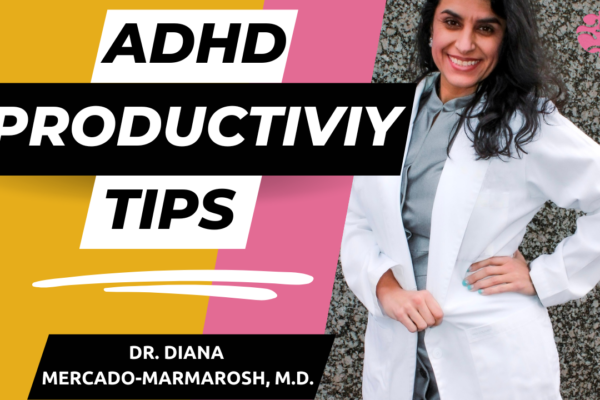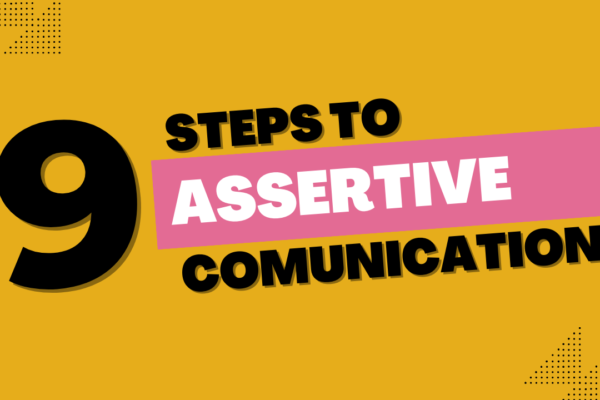Are you turning to food for comfort or stress relief? Then Stick around, because in this episode of the Mental Health Toolbox, we are taking with emotional eating expert, Jessica Procini, who is helping us to discover how to triumph over emotional eating and regain control over your life, so let’s go!
*Some of the links found here are affiliate links: As an Associate I earn from qualifying purchases by way of commission at no additional cost to you. See full disclaimer here:
Table of Contents
BIO: Learn More About Jessica Procini and How to Conquer Emotional Eating

Jessica Procini is on a mission to help high-achieving women heal the roots of their emotional eating so they can use food as a nourishing asset rather than a self-destructive way to cope, soothe and attempt to escape their busy, stressful lives.
She created Escape From Emotional Eating®, a unique process grounded in a decade of research, a background in Psychology of Eating, Transformational Coaching methods, and her own personal emotional eating journey because Overeaters Anonymous didn’t resonate with her and the 932 hours she spent in therapy never helped her end her fight with food.
She knew there needed to be a different kind of support… one that got to the roots of emotional eating.
Now 100% free from her compulsions with food, Jessica helps other high-achieving women get to the roots of their emotional eating through her year-long programs, retreats, keynotes, and workshops.
As a sought-after thought leader, Jessica’s work has received multiple awards from the Institute of Psychology of Eating and has been featured in noteworthy media outlets such as ABC, CBS, and MindBodyGreen.
https://escapefromemotionaleating.com/
CONTACT AND SOCIALS:
Watch The Interview
If you liked this episode, be sure to check out my full playlist of interviews here: https://youtube.com/playlist?list=PLnPL9gahfhWatKmy2YSyU0jt20h_jrj3H
Listen To The Interview
The Problem With Emotional Eating:
Do you often find yourself reaching for food as a means to cope with stress, sadness, or anxiety? If your answer is yes, then you may be an emotional eater. Emotional eating can lead to weight gain and other negative health consequences, but it’s a habit that can be conquered. In this comprehensive guide, we’ll explore the root causes of emotional eating and provide you with effective tips and strategies to help you overcome this common issue.
There’s a significant correlation between mental health and emotional eating. Emotional eating is often linked to negative feelings, but it can also be triggered by positive emotions, such as rewarding oneself for an achievement HelpGuide.
The Difference Between Emotional Eating, and Clinical Eating Disorders:
Emotional eating and clinical eating disorders often get conflated, but they are distinct from one another. Emotional eating refers to the tendency to overeat in response to negative emotions, using food as a way to suppress or soothe these feelings US Pharmacist. It can be triggered by various emotional states such as stress, boredom, loneliness, and sadness. Everyone may experience emotional eating from time to time.
On the other hand, a clinical eating disorder is a mental health condition that involves persistent and harmful patterns of behavior related to food, eating, and body image. Eating disorders, such as anorexia nervosa, bulimia nervosa, and binge-eating disorder, are characterized by severe disturbances in eating behavior. The main types of eating disorders are anorexia nervosa, bulimia nervosa, and binge eating disorder NCBI.
While emotional eating can be a part of an eating disorder, not everyone who eats emotionally has an eating disorder. A key difference between the two is the severity and frequency of symptoms. Eating disorders are typically more severe, involve extreme behaviors, feelings, and attitudes about food, weight, and body shape, and can significantly impact health and daily functioning.
If you or someone you know is struggling with emotional eating or an eating disorder, it’s important to seek help. The National Eating Disorders Association (NEDA) offers a helpline for support, resources, and treatment options NEDA. You can reach out via chat, call, or text today.
Understand the Triggers That Lead to Emotional Eating:
The first step in conquering emotional eating is to identify the triggers that lead you to overeat. Common triggers include stress, boredom, loneliness, sadness, and anxiety. Once you’ve identified your triggers, you can start to develop healthier coping mechanisms. For example, if stress is a trigger for you, try engaging in relaxation techniques such as yoga, meditation, or deep breathing exercises.
Stress has been shown to correlate not only with emotional eating but also with food choice motives such as mood, convenience, and price MDPI. In fact, numerous studies have shown that physical or emotional distress increases the intake of food high in fat Harvard Health.
Major life events or even the hassles of daily life can trigger negative emotions leading to emotional eating and disrupting weight-loss efforts Mayo Clinic.
Emotional eating was first reported to be significantly related to bulimia, supporting the hypothesis that emotion is a factor in overeating US Pharmacist.
Practice Mindful Eating:
Mindful eating is a powerful technique that can help you overcome emotional eating. To practice mindful eating, pay attention to your body’s signals of hunger and fullness. Eat slowly, chew your food thoroughly, and savor each bite. Avoid distractions such as television or your phone while eating, and focus on the taste and texture of your food.
It’s important to note that dietary intake that responds to emotions and not to physiological hunger may have long-term implications on health ScienceDirect.
Choose Healthy Foods That Nourish Your Body:
When you’re an emotional eater, it’s common to reach for sugary, fatty, or salty foods as a means to comfort yourself. However, these foods ultimately leave you feeling worse. Instead, choose healthy, nutrient-dense foods that nourish your body and give you energy. Examples include fruits and vegetables, lean proteins, whole grains, and healthy fats.
Build A Support System:
One of the keys to conquering emotional eating is to build a support system. This can include family members, friends, or a mental health therapist. Having someone to talk to about your struggles can help you feel less alone, and they can provide you with the encouragement and accountability you need to stay on track.
Practice Self-Care:
Finally, practicing self-care is essential to overcoming emotional eating. This includes getting enough sleep, exercising regularly, and taking time to do activities that bring you joy and relaxation. When you take care of yourself, you’re better equipped to handle the stresses of daily life without turning to food as a crutch.
Re-Cap:
Emotional eating can be a difficult habit to overcome, but it’s not impossible. By understanding your triggers, practicing mindful eating, choosing healthy foods, building a support system, and practicing self-care, you can conquer emotional eating and live a healthier, happier life. Remember that progress takes time, so be patient with yourself and celebrate each small victory along the way. With persistence and determination, you can overcome emotional eating and achieve long-term health and wellness.
Resources For Help With Eating Disorders:
- National Eating Disorders Association (NEDA) Helpline: Offers support, resources, and treatment options via chat, call, or text.
- ANAD (Anorexia Nervosa and Associated Disorders): Provides free, peer support services to anyone struggling with an eating disorder.
- Eating Disorder Hope: An online community offering information, recovery tools, and resources for individuals struggling with eating disorders.
- Walden Eating Disorders: Provides information on how to start getting help for an eating disorder.
- Beat Eating Disorders: Offers information on supporting someone with an eating disorder.
- HelpGuide: Provides tips on eating disorder treatment and recovery.
- Local treatment facilities: There are also local treatment centers and organizations that can provide assistance, such as the Oklahoma Eating Disorders Association, EDCare Kansas City, and the Eating Recovery Center Dallas/Plano.
*Some of the links are affiliate links: As an Associate I earn from qualifying purchases by way of commission at no additional cost to you.
Want to learn more? Check out my top picks for books on self-improvement and recovery HERE!
The Mental Health Toolbox: Resources and Support for Therapists Seeking Growth & Impact.
Mission Statement: To equip therapists with the tools, knowledge, and strategies they need to enhance their practice, boost their income, and ultimately, improve the lives of their clients. We achieve this through accessible, high-quality content, practical resources, and a supportive community.
NEED CRISIS HELP? If you need immediate crisis help with your depression, you can call the National Suicide Prevention Lifeline at 1-800-273-8255 or text “START” to 741-741
OUTSIDE THE UNITED STATES: See International Suicide Hotlines
WHERE TO FIND MENTAL HEALTH HELP:
-NAMI Referral Helpline: 1-800-950-6264
-California’s Statewide Mental Health Helpline: 1-855-845-7415
ASK: If you have a question you’d like me to answer here on the blog (even if you think it’s a silly one!), please use the form on the CONTACT ME page, or the comment section below. I would be happy to take a poke at it and provide a long form answer when appropriate.
SHARE: Also, be sure to share it with a friend, as there is still a lot of work to be done in raising mental health awareness.
SUBSCRIBE to get your FREE MOOD TRACKING TOOL and quick Mental Health Hacks in addition to this newsletter. Sign-up with the form below.
[mc4wp_form id=”142″]
admin
Latest posts by admin (see all)
- How to Build a Referral Engine Without the “Hustle”: - January 12, 2026
- ADHD Tips for Therapists | with Dr. Jennifer Dall - May 28, 2025
- Why Therapy Fails Men (And How to Fix It) – Insights with Marc Azoulay - May 11, 2025












